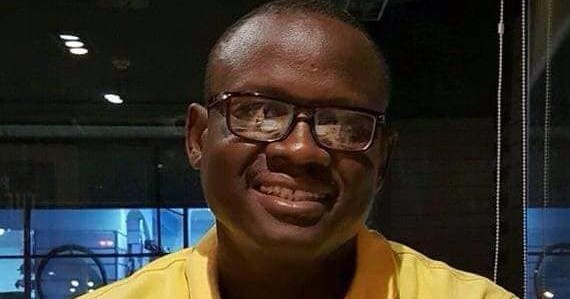“I had sleepless nights as a result of high fever and body pain,” a coronavirus survivor described of his fight against the virus.
Arthur Gabriel Yak, a South Sudanese writer living in the United States, believes he caught COVID-19 at a grocery store in South Dakota.
Speaking to Radio Tamazuj after he recovered fully, Arthur says he wants to share his journey to reassure people that you can beat the new virus – but still need to take it seriously.
Arthur was quarantined for two weeks upon testing positive for coronavirus. “I was only given Panadol and I used to take a lot of fluids such as juice and soup, but there was no sleep,” he said.
Coronaviruses are a large family of viruses that cause illness ranging from the common cold to more severe diseases such as Middle East Respiratory Syndrome and Severe Acute Respiratory Syndrome.
The United States has recorded 1.6 million cases of the novel coronavirus, according to the Johns Hopkins University tracker.
In South Sudan, the number of coronavirus cases has risen to 655 after 92 people tested positive on Saturday, the highest tally since the first case was reported in April.
According to the COVID-19 survivor, over 20 South Sudanese nationals in his neighborhood tested positive for the disease and some have fully recovered, but others are still undergoing treatment.
The South Sudanese writer believes the illness tests one’s mental state as much it does the physical. “It was a horrible experience and it affected me so much. Seeing people dying and thinking that you can even die,” Arthur recalled.
The United States has recorded 97,087 deaths due to the novel coronavirus, according to data compiled by Johns Hopkins University.
Apart from supportive treatments given by his doctor, Arthur said he had to turn to daily prayers for God to heal him and others.
The coronavirus survivor appealed to South Sudan’s government to encourage citizens to observe health guidelines against the spread of the novel coronavirus.
“Look at the United States with all its good medical facilities and yet they are unable to control the virus and thousands of Americans have died. What about South Sudan with its fragile health system?” He asked.
Health experts have warned that the virus could devastate South Sudan, with nearly 12 million people, due to a lack of healthcare equipment and infrastructure.
“South Sudan’s health sector lacks medical personnel, modern healthcare equipment and many citizens still find it difficult to access the existing health facilities in many parts of the country,” said Dr. Emmanuel Timothy, the head of the World Health Organization (WHO) in Upper Nile State.
According to Arthur, the only way to prevent the spread of the virus in South Sudan is to observe social distancing and high standards of hygiene.
“All forms of gatherings like tea places should be abolished. The disease is real, so South Sudanese should take it seriously,” he said.




